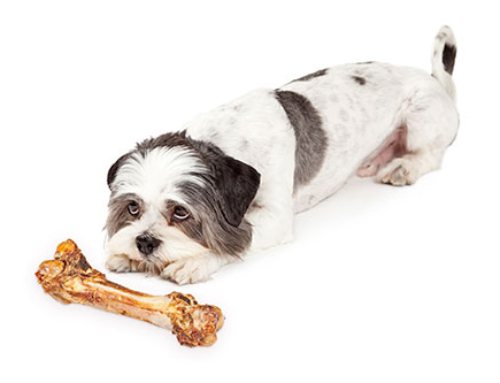
Most dogs and cats will develop a bout of diarrhea in their lifetime, and the question becomes how I treat it and do I need to take them to the doctor -your veterinarian.
What causes diarrhea?
Diarrhea is not a disease; it is a symptom and can be caused by many different problems/diseases. Diarrhea is the result of faster movement of fecal material through the intestine, combined with decreased absorption of water, nutrients, and electrolytes, which can lead to dehydration and become life threatening. A common cause of acute or sudden diarrhea is dietary indiscretion (eating table food, garbage or other offensive irritating materials) and or a change in diet. Other causes of diarrhea include intestinal infection from bacteria, coccidia, Giardia or intestinal worms and stress, especially following travel, boarding, or other changes in the environment, can also cause acute diarrhea. But diarrhea can also be a sign of a more serious underlying disorder such as allergies, bacterial or viral infections (such as parvovirus), inflammatory bowel disease, organ dysfunction, cancer, or other systemic illnesses.
How is diarrhea treated?
If the only sign of illness in your dog is diarrhea, a relatively simple problem such as an intestinal infection from bacteria, coccidia, Giardia or intestinal worms may be the cause and dropping off a fresh fecal sample can help with diagnosis and treatment. For otherwise healthy adult dogs, your veterinarian may advise you to withhold food (NOT WATER) for up to 24 hours and/or to feed small quantities of a bland diet such as chicken and rice. Your vet may recommend feeding small quantities of a veterinary diet for gastrointestinal problems. Anti-diarrheal agents, de-wormers, and/or probiotics (bacteria that support intestinal health) may be prescribed. Many cases of acute diarrhea respond quite readily to conservative treatment, allowing the body’s healing mechanisms to correct the problem, without the initial cause ever being established. As the stools return to normal, your dog’s regular diet can usually be transitioned from the prescribed veterinary diet over seven to ten days.
How can I tell if the diarrhea is serious and needs a trip to the veterinarian?
The seriousness of diarrhea depends on how long it persists and how many other clinical signs accompany it and if your pet is dehydrated. Diarrhea associated with minor conditions can often be resolved quickly with simple treatments. However, if your dog has severe diarrhea with or without blood and/or is showing more generalized signs of illness such as weakness, fever, vomiting, abdominal pain, loss of appetite, or dehydration, the cause may be more serious and medical attention should be sought as soon as possible. Also, if your dog is not improving within two to four days, further tests or more aggressive treatment may be necessary and you should take your pet to the veterinarian as soon as possible. Severe or prolonged diarrhea can result in significant dehydration and metabolic disturbances due to fluid loss, and your dog may require hospitalization for intravenous fluid therapy or other, more intensive treatments. Even diarrhea caused by mild illnesses may become serious if treatment is not begun early enough.





